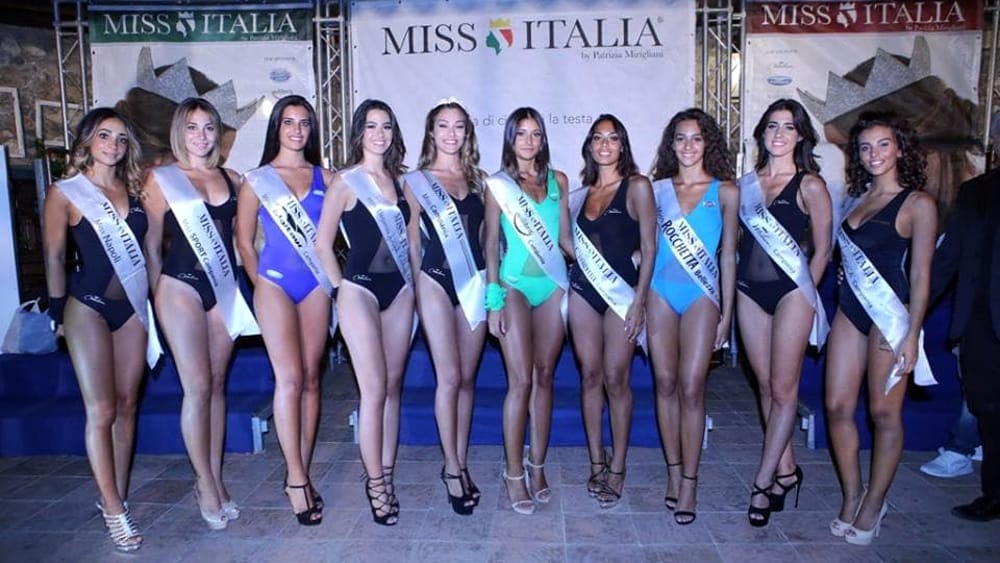In an era where personal and public lives increasingly intertwine across digital platforms, a quintessential Italian beauty pageant finds itself at the heart of a very modern controversy. The exclusion of a finalist from Miss Italia has ignited a fervent debate, not just about the contest`s stringent rules, but about the complex landscape of online privacy and public image.
The Disqualification That Shook the Tiara
The spotlight recently fell upon Vanessa Zeneli, a 25-year-old model from Udine, Italy, whose aspirations for the coveted Miss Italia crown were abruptly cut short. Zeneli, a finalist for Miss Friuli-Venezia Giulia, was disqualified from the national competition following allegations of her involvement with “nude photos” purportedly circulating on OnlyFans, a platform synonymous with adult content. The organizers of Miss Italia, guardians of a tradition stretching back decades, swiftly invoked Article 8 of their regulations, which explicitly prohibits contestants from having profiles on such adult-oriented websites.
This incident is more than just a procedural matter; it’s a cultural touchstone, highlighting the friction between an institution rooted in classical ideals of beauty and decorum, and the fluid, often uninhibited, nature of the internet age. For Miss Italia, the rule is clear: a pristine public image is paramount. For Zeneli, however, the narrative is far more convoluted and, indeed, unsettling.
A Stalker`s Shadow: Zeneli`s Defense
Zeneli has vehemently denied intentionally publishing any explicit content on OnlyFans. Her defense paints a chilling picture: she claims to be the victim of a stalker. According to Zeneli, this individual, whom she intends to report to authorities, allegedly obtained her private nude photographs and maliciously disseminated them across various adult websites, including OnlyFans, with the express intent of sabotaging her pageant journey. She asserts that the regional organizer, Paola Rizzotti, was aware of her past private photos but still encouraged her participation, only for the national organization to later enforce the disqualification after the “evidence” surfaced.
This claim introduces a potent and disturbing element to the controversy. If true, it transforms a straightforward rule violation into a grave matter of cyberstalking and privacy infringement. It asks society to consider: should a victim of malicious digital acts be penalized for circumstances beyond their control? The digital footprint, once a controllable personal archive, can now become a weapon wielded by others, blurring the lines of accountability.
The Pageant`s Stance: “A Serious Curriculum”
On the other side of the debate stands Patrizia Mirigliani, the orchestrator of Miss Italia and daughter of its historic founder. Mirigliani`s position is firm yet tinged with a degree of melancholy. She denies direct involvement in Zeneli`s disqualification email, stating that the information regarding the photos came from her internal staff, not an alleged stalker. Her primary concern, she articulates, is the integrity of the contest and the future of its participants.
“We want to treat this case with a certain discretion more to protect the girls than for the contest itself, which is serious and has rules to respect. The fact is that these young women have a life ahead of them; they cannot want everything and immediately, but must seek a suitable path for their future. I am genuinely sorry for the entire situation, but I believe that each of them, when entering the world of work, must have a serious curriculum. One can make mistakes, certainly, but one cannot continue to do so.”
Mirigliani`s statement underscores a foundational philosophy of Miss Italia: participants are expected to embody a certain public image, implying a curated professional trajectory. The irony, some might observe, is that beauty pageants themselves, while requiring discipline, can often be seen as a fast track to public recognition, a path that perhaps encourages the very “wanting everything and immediately” she cautions against. The definition of a “serious curriculum” in an age where social media profiles often precede traditional resumes is a question many modern institutions grapple with.
Further complicating matters, Armando Casalino, organizer for Miss Trieste, did report receiving a suspicious email containing links to the explicit photos and mentioning the alleged stalker, suggesting a calculated effort to undermine Zeneli.
The Broader Implications: Navigating the Digital Wild West
The Vanessa Zeneli case serves as a stark reminder of the evolving challenges faced by public figures, aspiring and established, in the digital age. It`s a landscape where:
- Privacy is porous: Personal images, once confined to private albums, can find their way onto global platforms with devastating speed.
- Reputation is fragile: A single digital footprint, whether voluntary or involuntary, can instantly alter public perception and career prospects.
- Rules are rigid, reality is fluid: Traditional institutions struggle to enforce pre-digital era regulations in a world where digital content is constantly created, shared, and weaponized.
- Victim blaming is a risk: The onus of responsibility can unfairly shift from perpetrator to victim, particularly in cases of non-consensual image sharing.
As Miss Italia prepares for its grand finale, the shadow of this controversy looms large. It forces a reflection on what “beauty” truly means in the 21st century—is it merely physical perfection and adherence to traditional codes, or does it encompass resilience, the right to privacy, and the ability to navigate a complex digital world? The answers, like much of our online existence, remain frustratingly ambiguous.
This article is a creative rendition based on the provided news context and does not represent direct quotes or factual claims beyond the original source material.

